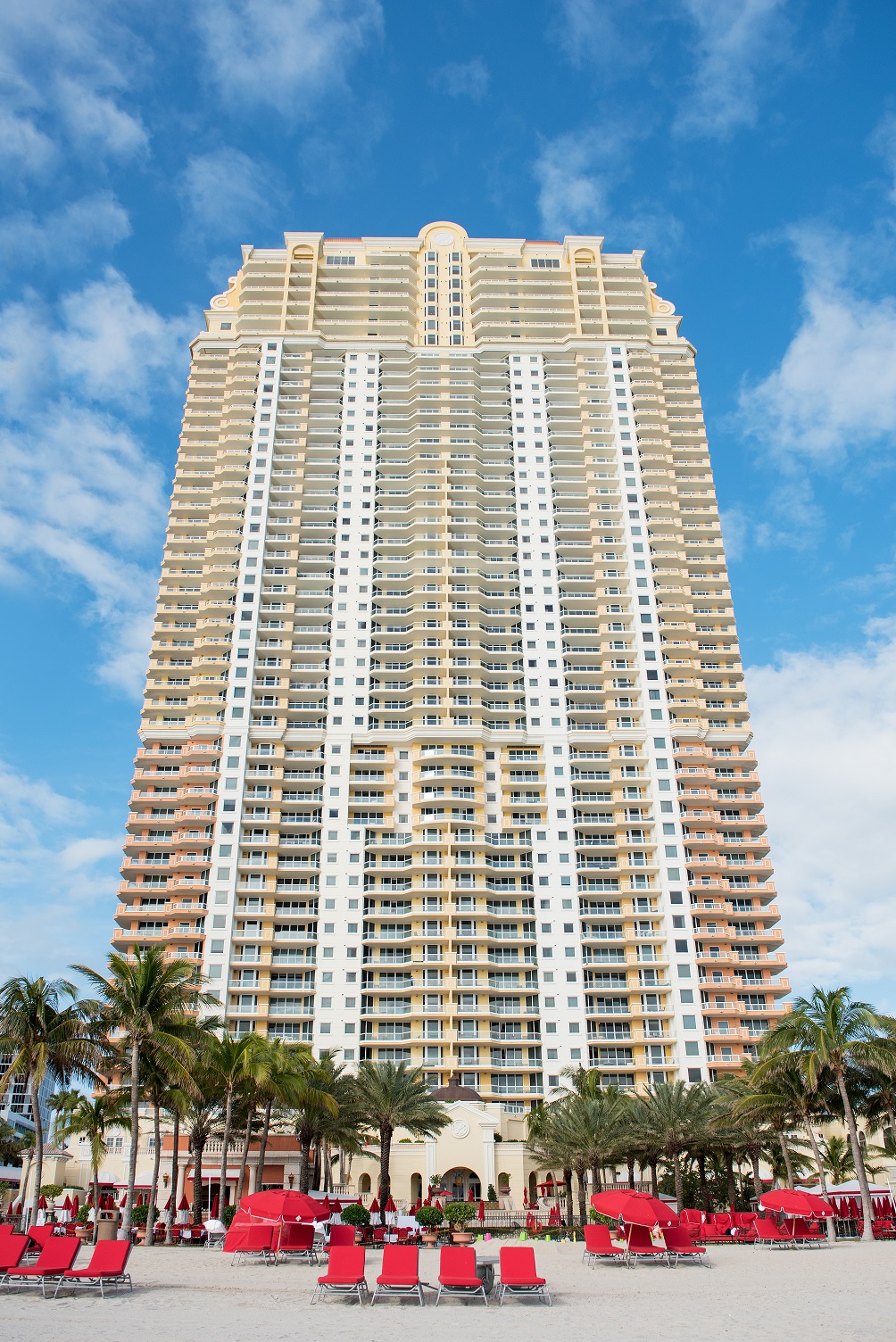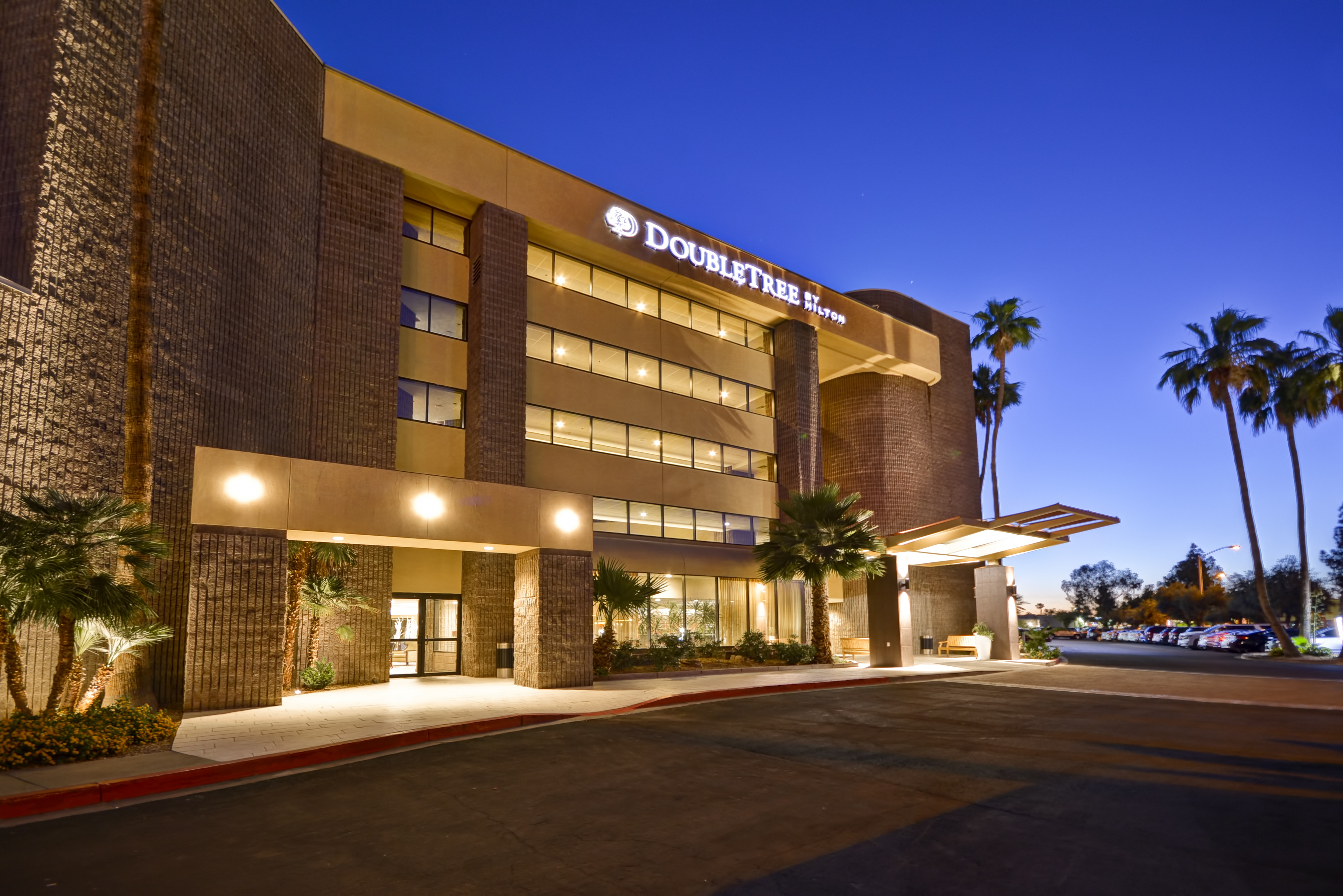Open for Business: Hotels Post-COVID-19
Hotel owners and investors are facing sharp declines in occupancy, which is likely to lag for some time. What’s ahead for the hospitality industry when travel starts bouncing back?
With the exception of retail, there is no commercial real estate sector that’s been harder hit by the effects of the COVID-19 pandemic than hospitality. Hotel owners and investors are reeling, facing occupancy rates that in some cases have dropped to zero as hotels around the nation shuttered, leisure and corporate travel came to a virtual halt due to shelter-in-place orders and group business evaporated—and is not expected to come back until at least the fourth quarter of 2020, experts say, when confidence returns to traveling conventioneers.
Current Hotel Fundamentals
According to STR, a hospitality-industry data benchmarking and analytics firm based in Hendersonville, Tenn., the U.S. hotel industry reported significant year-over-year declines in three key performance metrics during the week ending April 25, 2020, the latest period for which data is available.
READ ALSO: Hospitality Design Trends: Before and After the Pandemic
Compared to the same period a year prior, hotel occupancy dropped 62.2 percent, to 26.0 percent nationally. Average daily rate—the average income from paid, occupied rooms—was down 42.9 percent, to $73.61, and revenue per available room (RevPAR) declined 78.4 percent, to $19.13.
STR also reported on April 29 that U.S. hotel gross operating profit per available room (GOPPAR) plummeted in March 2020—by 101.7 percent—due to the virtual standstill of business travel and leisure activity.
Currently demand, when it exists for hotel rooms, is mostly attributable to frontline workers—doctors, nurses, first responders, construction workers—who prefer to stay in hotels rather than risk exposing their families to possible infection.
“Even in this challenging environment, some types of hotels are demonstrating a bit more durability,” said Skyler G. Cooper, national director of the hospitality division of Marcus & Millichap. “Compared to a national hotel occupancy rate in the low-20 percent band, lower service-level, extended-stay hotels are reporting an average occupancy of about 50 percent.”
Hotel Operations Evolving to Ensure Safety and Rebuild Confidence

The signature red chaise lounges on the beach at the 98-room Acqualina Resort & Residences in Sunny Isles Beach, Fla. sit empty. The five-star resort has been closed since March 21 but is targeting a reopening for late May or early June.
On a typical day, Acqualina Resort & Residences, a luxury 98-key beachfront hotel in Sunny Isles Beach, Fla., would be filled with affluent guests enjoying the world-class dining, three oceanfront pools, ESPA-branded spa and all of the other amenities of the lavish five-star resort just north of Miami Beach.
But today it sits empty. While the owners of the 188 residences flanking the hotel are still there, there are no transient guests, and unit owners lack access to any of the restaurants or amenities, which closed with the hotel on March 21.

Deborah Yager Fleming, CEO & partner of Acqualina Resort & Residences in Sunny Isles Beach, Fla., is readying the five-star resort, which has been closed since March 21, for reopening.
The hotel is targeting a reopening date in late May or early June, according to Deborah Yager Fleming, its CEO & partner. And changes are on the horizon.
“Acqualina is a five-star resort, and our goal is to offer an exclusive ultra-luxury experience that will feature an even heightened level of service,” she said.
Guests will have dedicated “experience managers” similar to a private concierge, who will deliver personalized services. Technology usage will be enhanced, with a new smartphone app that allows guests to check in remotely and order food and have it delivered to specific locations. The technology helps users social distance more efficiently.
Sanitation protocols will be improved at the hotel as well. In addition to Acqualina’s standard cleaning protocols, an electrostatic disinfectant tool will be used. And the resort’s staff will be gloved and masked at all times.
Hotels across the board are improving their already stringent sanitation processes. Hilton recently announced a collaboration with RB, the maker of Lysol and Dettol, and with the Mayo Clinic, to create an industry-defining new standard of cleanliness and disinfection in Hilton properties around the world, from check-in to check-out. And Marriott International is rolling out a multi-pronged platform to elevate its cleanliness standards and hospitality norms and behaviors to meet the new health and safety challenges presented by the current pandemic.
Guest checking into hotels, whether it’s the five-star Acqualina, or a three-star, select-service hotel, are likely to find the breakfast buffet a thing of the past. Instead, staff members may be serving breakfast. Another alternative: Sanitized grab-and-go breakfasts for guests on the run, with pre-wrapped utensils, which is what Alpharetta, Ga.-based Hotel Equities is doing with the 140 hotels in its portfolio, all of which are open and serving first responders and other essential workers.
“The changes have been profound,” said Brad Rahinsky, the firm’s president & CEO. “I’ve been in the business 32 years, and I’ve been through not only downturns in the cycle but the 2008 global financial crisis, 9/11, SARS and H1N1, and none of that compares.”
Other changes in Hotel Equities’ properties, which are situated in 26 states and five Canadian provinces: Plexiglass installed at check-in to separate guests and front-desk staff; reduced housekeeping to minimize interaction (housekeeping will only be provided on guest check-out); gyms closed; and areas where guests might congregate modified to ensure social distancing. Even lobby TVs are turned off to avoid people from gathering. “Without any nefarious intentions, all of a sudden you realize you’re within three feet of somebody when you’re watching TV, and you’re breaking social distancing,” Rahinsky said.

The DoubleTree by Hilton Phoenix North is the only one of Bob Rauch’s five hotels that is closed due to the COVID-19 pandemic. The full-service hotel closed on April 10 and is expected to reopen in June.
Communication is another strategy hoteliers are using to keep stakeholders informed and enhance guest and staff safety. “We’ll have a lot of signage to educate employees and guests,” said Bob Rauch, CEO of RAR Hospitality in San Diego, who owns five hotels in Arizona and California, only one of which—the DoubleTree by Hilton Phoenix North—is closed. He plans to provide more communication with guests before they arrive, during their stay and after their stay, as well as with employees to better meet everyone’s expectations.
Future Opportunities
Despite the challenges the industry is facing now, investors remain bullish on the future of hospitality. “It’s not a good environment for transactions now because a prospective seller has little motivation to take a deep discount on value,” said Rich Lillis, executive managing director, Hotels USA, for Colliers International. “But there are many buyers and groups who are assembling equity capital to take advantage of opportunities that may come. My phone is ringing constantly.”
Lillis said things may improve toward the end of 2020, when hotels reopen and demand gradually improves, but he doesn’t expect the industry to fully recover until late 2021 or 2022.
Marcus & Millichap’s Cooper agrees. “A recovery for the hospitality sector cannot truly begin until the health crisis is resolved. It may take an extended period of time before many individuals feel comfortable traveling and staying at a hotel, but efforts to deliver clean, disinfected units with limited contact with hotel staff may support the outlook.” Cooper said that a vaccine or other medical solution to COVID-19 will be “critical” to restoring both consumer and investor confidence in the sector.
In the meantime, he said that while the lack of liquidity in the hospitality sector makes it difficult to price assets and complete transactions, he expects the most sought-after lodging properties in the near future to be extended-stay hotels, limited-service hotels and hotels along interstate highways, with deeply discounted assets also attractive to well-capitalized investors looking for value-add opportunities.







You must be logged in to post a comment.